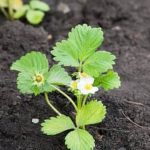Pest control is a crucial aspect of maintaining a healthy and thriving vegetable garden. When pests invade your precious crops, they can cause significant damage and jeopardize your harvest. One common question that arises among gardeners is, “What bug spray is safe for vegetable gardens?” With an increasing concern for the environment and our health, it is essential to explore natural and organic options for pest control.
Insect pests such as aphids, caterpillars, beetles, and mites are just a few examples of the critters that can wreak havoc on your vegetable plants. These pests feed on the leaves, stems, and fruits of your crops, leading to stunted growth, wilting, yellowing leaves, and even crop loss if left unchecked. While chemical bug sprays may offer a quick fix to eliminate these pests, they come with potential risks to human health and the environment.
Using chemical bug sprays in vegetable gardens can introduce harmful substances into the soil and waterways. Moreover, pesticides may also kill off beneficial insects like ladybugs or bees that play a vital role in pollination and natural pest control. As a result, more gardeners are turning to natural or organic bug spray options that effectively target pests while minimizing adverse effects on the ecosystem. By opting for safer alternatives, you can protect both your crops and the environment.
Common Pests Found in Vegetable Gardens and the Damage They Can Cause
Vegetable gardens are often vulnerable to a variety of common pests that can cause significant damage to crops if left unchecked. One of the most destructive pests is the aphid, which feeds on plant sap and can quickly multiply, leading to stunted growth and deformed leaves.
Another notorious garden pest is the tomato hornworm, known for devouring tomato plants rapidly if not controlled effectively. Additionally, caterpillars, beetles, and mites are also common culprits in vegetable gardens, causing holes in leaves and reducing crop yields.
Using the wrong bug spray in vegetable gardens can pose risks to both plants and humans. Chemical bug sprays containing harmful ingredients such as synthetic pesticides can leave residue on vegetables, making them unsafe for consumption.
Moreover, these chemicals can harm beneficial insects like bees and ladybugs that play a crucial role in pollination and pest control. This is why it is essential to choose bug sprays that are safe for vegetable gardens to protect both the crops and the environment.
When looking for safe bug spray options for vegetable gardens, consider natural or organic products that are specifically designed for use on edible plants. Products containing ingredients like neem oil, insecticidal soap, or pyrethrin derived from chrysanthemum flowers are effective against a wide range of garden pests without leaving harmful residues. These natural alternatives provide a safer way to control pests while maintaining the integrity of your vegetable garden.
| Pest | Damage Caused |
|---|---|
| Aphids | Stunted growth and deformed leaves |
| Tomato Hornworm | Rapid destruction of tomato plants |
| Caterpillars, Beetles, Mites | Holes in leaves and reduced crop yields |
Risks of Using Chemical Bug Sprays in Vegetable Gardens
Chemical bug sprays can be effective in controlling pests in vegetable gardens, but they come with risks that may outweigh their benefits. Many conventional insecticides contain harmful chemicals that can linger on plants, contaminate soil, and pose a threat to beneficial insects like bees and ladybugs.
These chemical bug sprays can also leave residue on vegetables, making them unsafe for consumption. That’s why many gardeners are turning to natural or organic bug spray options to protect their crops without compromising their health or the environment.
One of the main concerns with using chemical bug sprays in vegetable gardens is the potential harm they can cause to human health. Many of these sprays contain toxic ingredients that can be absorbed by the skin or inhaled during application.
Exposure to these chemicals has been linked to various health issues, including respiratory problems, skin irritation, and even more serious conditions with long-term use. This is especially concerning when growing vegetables that are meant to be eaten fresh from the garden, as any residue left by the bug spray can end up on the produce.
To avoid these risks, it’s important for gardeners to research and choose safe bug sprays for their vegetable gardens. Natural and organic insecticides made from plant-based ingredients like neem oil, pyrethrin, or diatomaceous earth are effective alternatives that are safer for both humans and the environment.
These options target pests without leaving harmful residues behind, ensuring that your vegetables remain healthy and free from potentially dangerous chemicals. In addition, practicing good pest management techniques such as crop rotation, companion planting, and regular inspection can help reduce the need for bug sprays altogether.
| Benefits of Natural Bug Sprays | Risks of Chemical Bug Sprays |
|---|---|
| Gentler on beneficial insects | Can harm bees and other pollinators |
| Safer for human health | Potential skin irritations or respiratory issues |
| No harmful residues on vegetables | May leave toxic residues on produce |
Benefits of Using Natural or Organic Bug Sprays in Vegetable Gardens
Using natural or organic bug sprays in vegetable gardens can offer numerous benefits, both for the plants and the environment. These types of bug sprays are safer for edible plants and reduce the risk of chemical residues on your produce. Additionally, they are less harmful to beneficial insects like bees and ladybugs, which play a crucial role in pollination and pest control.
Here are some key benefits of using natural or organic bug sprays in vegetable gardens:
- Eliminate harmful chemicals: By opting for natural bug sprays, you can avoid exposing yourself, your family, and your pets to potentially toxic substances.
- Environmentally friendly: Organic bug sprays break down more easily in the environment compared to synthetic chemicals, reducing harm to wildlife and water sources.
- Promote soil health: Chemical insecticides can disrupt the balance of microorganisms in the soil, while natural options work with nature to maintain healthy soil ecosystems.
When considering what bug spray is safe for vegetable gardens, it’s important to prioritize natural or organic options to protect both your crops and the surrounding ecosystem. With a growing awareness of sustainable practices in gardening, more gardeners are turning to these safer alternatives for pest control. By incorporating natural bug sprays into your gardening routine, you can help promote a healthier environment while still effectively managing pests that threaten your vegetable crops.
Top Natural Bug Spray Options for Vegetable Gardens
When it comes to keeping your vegetable garden free of pests, choosing a safe and effective bug spray is crucial. Many commercial insecticides contain harmful chemicals that can be toxic to both the environment and human health. However, there are several natural bug spray options that can effectively control garden pests without posing any risks.
Neem Oil
One of the top natural bug spray options for vegetable gardens is neem oil. Neem oil is derived from the seeds of the neem tree and has been used for centuries as a natural insecticide. It works by disrupting the feeding and reproductive habits of insects, making it an effective solution for controlling a wide range of garden pests such as aphids, beetles, and caterpillars.
Diatomaceous Earth
Diatomaceous earth is another safe and non-toxic bug spray option for vegetable gardens. This powder-like substance is made from fossilized algae and works by damaging the exoskeletons of insects, leading to dehydration and ultimately death. Diatomaceous earth is particularly effective against crawling insects like ants, slugs, and snails.
Garlic Spray
Garlic spray is a homemade bug repellent that can help keep pests at bay in your vegetable garden. To make garlic spray, simply blend garlic cloves with water and strain the mixture into a spray bottle. Garlic contains compounds that repel insects such as aphids, beetles, and spider mites. Regularly applying garlic spray to your plants can help deter these common garden pests without causing any harm to your vegetables or beneficial insects.
By choosing natural bug sprays like neem oil, diatomaceous earth, and garlic spray for your vegetable garden, you can effectively control pests while ensuring the safety of your crops, beneficial insects, and the environment as a whole. Experiment with different options to find what works best for your specific pest problems while maintaining a healthy balance in your garden ecosystem.
Remember to always read labels carefully and follow application instructions to maximize the benefits of these natural bug sprays for your vegetable gardens.
DIY Bug Spray Recipes for Vegetable Gardens
Many gardeners prefer to use natural or organic bug sprays in their vegetable gardens to avoid harmful chemicals that can affect the health of both the plants and the individuals consuming them. Making your own DIY bug spray is a cost-effective and environmentally friendly way to control pests while ensuring the safety of your vegetables. Here are some simple recipes you can try:
- Garlic Spray: Mix 2 bulbs of garlic with 1 quart of water in a blender, strain the mixture, then add 1 teaspoon of liquid soap. This spray is effective against aphids, caterpillars, and other soft-bodied insects.
- Neem Oil Spray: Combine 1 tablespoon of neem oil with 1 quart of warm water and a few drops of liquid soap. Neem oil is known for its insecticidal properties and can help control a wide range of pests in the garden.
- Hot Pepper Spray: Boil 2 cups of water with 2-3 chopped hot peppers, let it cool, strain it, then add a few drops of liquid soap. This spicy spray repels insects like spiders, beetles, and aphids.
By using these DIY bug spray recipes, you can effectively manage pest problems in your vegetable garden without relying on harsh chemicals that could harm your plants or beneficial insects. Experiment with different ingredients to find what works best for your specific pest issues.
Remember to always test a small area of your plants before applying a new bug spray to ensure they do not have any adverse reactions. Additionally, consider rotating between different natural bug sprays to prevent insects from becoming resistant to one particular formula over time. What bug spray is safe for vegetable gardens? These DIY options offer safer alternatives for pest control while promoting a healthy environment for your crops.
Tips for Effectively Applying Bug Spray in Vegetable Gardens
When it comes to pest control in vegetable gardens, using bug sprays can be an effective solution to protect your plants from harmful insects. However, it is crucial to apply the bug spray correctly to ensure its effectiveness while also being mindful of the safety of your plants, yourself, and the environment. Here are some tips for effectively applying bug spray in vegetable gardens:
Timing Is Key
One of the most important factors when applying bug spray is timing. Make sure to apply the bug spray early in the morning or late in the evening when bees and other beneficial insects are less active. This will help minimize any harm to these beneficial insects while still targeting the pests.
Even Coverage
When spraying your vegetable garden with bug spray, ensure that you cover all parts of the plant, including both sides of leaves and stems. Pests can hide on the underside of leaves, so make sure you don’t miss any spots. You want to create a barrier that will deter pests from damaging your plants.
Follow Instructions
Whether you are using a store-bought natural bug spray or a DIY recipe, always follow the instructions for proper dilution and application. Using too much bug spray can harm your plants and may not be more effective against pests. Additionally, wearing protective gear such as gloves and a mask is recommended when applying bug sprays for added safety.
By following these tips for effectively applying bug spray in your vegetable garden, you can protect your plants from pests while also ensuring the safety of yourself and beneficial insects. Remember to always choose safe bug sprays for vegetable gardens to maintain a healthy balance in your garden ecosystem.
If you’re unsure about which bug spray is safe for your vegetable garden, do some research or consult with a gardening expert before making a decision on what product to use.
How to Maintain a Healthy Balance of Beneficial Insects While Using Bug Sprays
One of the key aspects of maintaining a thriving vegetable garden is to strike a healthy balance between controlling harmful pests and preserving beneficial insects. While using bug sprays in vegetable gardens can help eradicate destructive pests, it is crucial to ensure that you are not unintentionally harming the beneficial bugs that play a vital role in pollination and pest control. So, what bug spray is safe for vegetable gardens while also being friendly to beneficial insects?
One effective way to maintain this balance is by choosing natural or organic bug sprays that specifically target harmful pests without posing a threat to beneficial insects. Products containing ingredients such as neem oil, insecticidal soaps, or botanical oils are known for their ability to combat common garden pests like aphids, mites, and caterpillars while being gentle on beneficial insects such as ladybugs, bees, and lacewings.
These natural bug sprays offer a safer alternative to chemical pesticides and ensure that your vegetable garden remains a thriving ecosystem.
In addition to selecting safe bug sprays for your vegetable garden, another essential strategy is to implement companion planting techniques that attract beneficial insects. Plants like marigolds, dill, and fennel act as natural repellents for harmful pests while attracting predatory insects like parasitic wasps and ladybugs.
By incorporating these companion plants into your garden layout alongside using safe bug sprays, you can create an environment that supports both the growth of your vegetables and the presence of beneficial bugs. This integrated approach not only helps in pest control but also contributes to the overall health and sustainability of your vegetable garden ecosystem.
Conclusion Emphasizing the Importance of Choosing Safe Bug Sprays for Vegetable Gardens
In conclusion, when it comes to pest control in vegetable gardens, choosing safe bug sprays is crucial to ensure the health of your plants, yourself, and the environment. The risks associated with chemical bug sprays are significant, from harming beneficial insects to contaminating soil and water sources. By opting for natural or organic bug spray options, you can effectively manage pests while minimizing negative impacts.
When considering what bug spray is safe for vegetable gardens, it’s important to prioritize products that do not contain harmful chemicals that can leach into the food you will eventually consume. Look for ingredients like neem oil, peppermint oil, or garlic that are effective at repelling pests without posing risks to your health or the environment. Additionally, exploring DIY bug spray recipes can give you more control over what goes into your pest control solution.
Maintaining a healthy balance of beneficial insects in your garden is also key when using bug sprays. By being selective about when and where you apply the spray and avoiding blanket treatments, you can protect pollinators and other helpful bugs that contribute to a thriving ecosystem. Ultimately, choosing safe bug sprays for vegetable gardens is not only about managing pests but also about fostering a sustainable and eco-friendly approach to gardening that benefits both you and the planet.
Frequently Asked Questions
Can You Spray Bug Spray on Vegetable Plants?
It is generally not recommended to spray bug spray directly on vegetable plants because it can be harmful to both the plant and anyone consuming the vegetables. Instead, there are safer alternatives to protect your plants from pests.
Which Insecticide Can Be Used Safely on Vegetables?
When looking for an insecticide that can be safely used on vegetables, it is important to choose products that are labeled as safe for edible plants. Organic insecticides containing ingredients like neem oil or insecticidal soap are good options as they are considered safe for use on vegetables.
What Can I Use to Keep Bugs Off My Vegetable Garden?
To keep bugs off your vegetable garden, there are several natural methods you can try. Planting companion plants that repel insects, such as marigolds or basil, can help deter pests. Using row covers or creating physical barriers like fences can also protect your plants from unwanted bugs. Additionally, practicing crop rotation and maintaining healthy soil can help prevent infestations.

If you’re looking to get into vegetable gardening, or are just looking for some tips on how to make your current garden better, then you’ve come to the right place! My name is Ethel and I have been gardening for years. In this blog, I’m going to share with you some of my best tips on how to create a successful vegetable garden.





